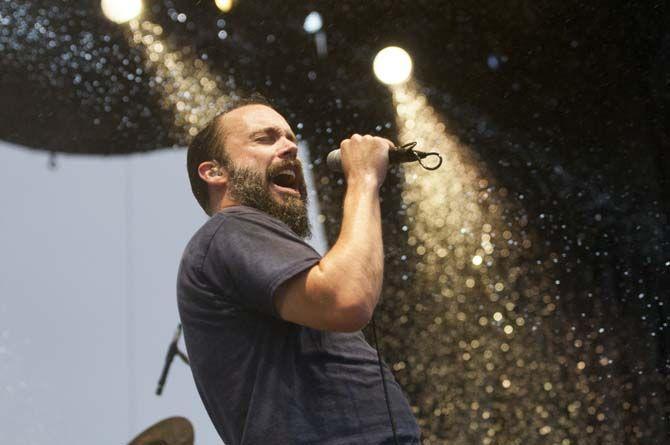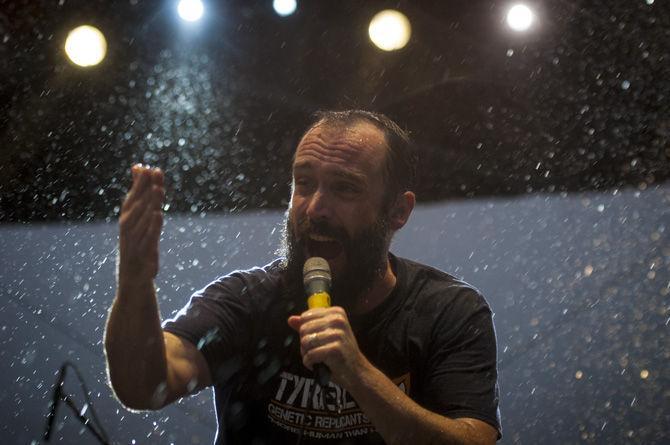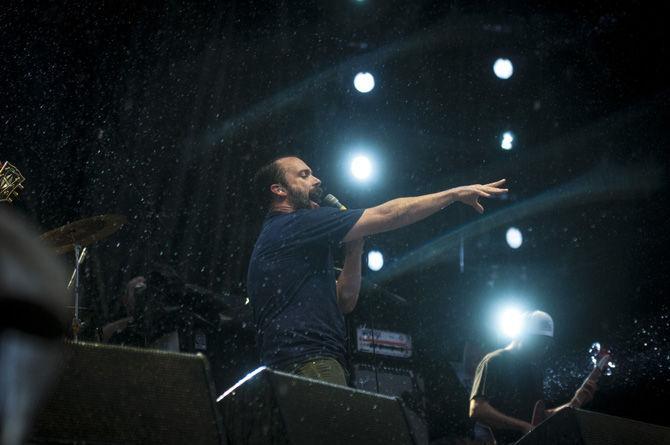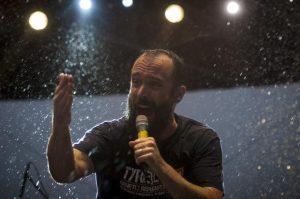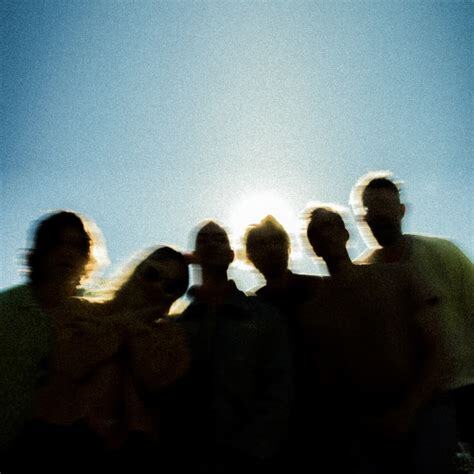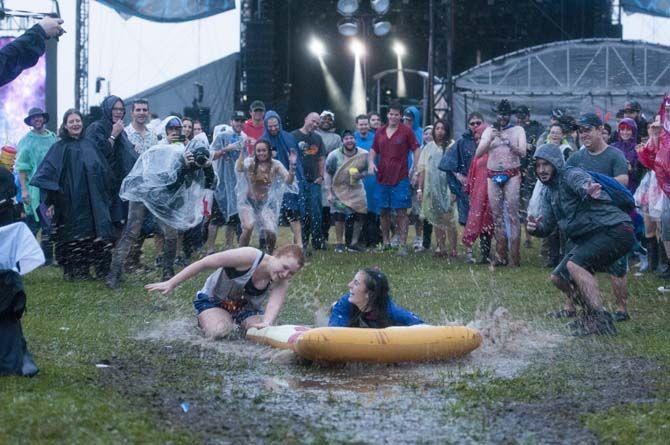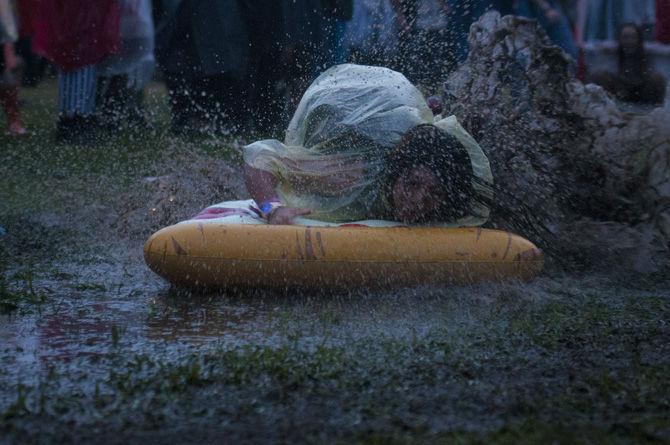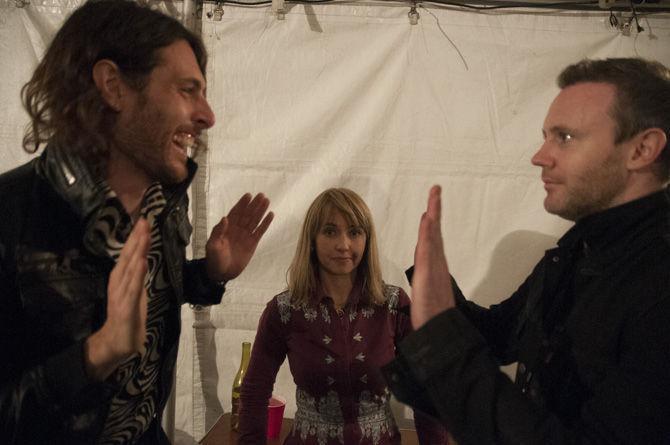Composed of Neil Fallon, Jean-Paul Gaster, Dan Maines and Tim Sult, pushing heavy rock boundaries is what the band Clutch has done since its inception almost 25 years ago.
Rock music has changed, but Clutch has stayed the same, showing an impressive ability to sustain with the same unit the group was formed with after all these years. The Daily Reveille chatted with drummer Jean-Paul Gaster ahead of the band’s impressive Voodoo Music and Arts Experience set to discuss the writing the festival setlist, career longevity and appealing to a younger audience.
The Daily Reveille: You guys are from Maryland, right?
Jean-Paul Gaster: That is correct.
TDR: So what’s it like being in New Orleans?
Gaster: Oh, I love New Orleans. My wife and I got married here in New Orleans. We come down whenever we can.
TDR: Anxious to get to your set later today?
Gaster: Well, it just so happens that today is my day to write the setlist. We actually take turns.
TDR: How does that work?
Gaster: It goes alphabetical order by first name. We’ve been doing that now for about 20 years.
TDR: How did you decide to do that?
Gaster: Oh, man. That was just something we decided to do, you know. Writing a setlist can be a time where there’s a lot of debate. So rather than go through that exercise we decided to give each guy a chance to write the setlist. That way, for instance when it’s my turn to write the setlist I can put whatever songs I want on there, and they can’t say anything about it.
TDR: How do you write setlists for festivals as opposed to small venues?
Gaster: Today when I write the setlist, I’ll keep in mind that it’s not a club and I’ll think about how to get as many people who might not normally know about Clutch to have a good time and enjoy the music. So, we’ll try to write a setlist that’ll accommodate those kind of people. The thing is, when you play these festivals, you really have the opportunity to play for fresh ears. When you’re in a club, you know all those folks are there to see you and they know what your sound is and what you do. But here you really have the opportunity to expose yourself to other folks, that’s what we’re going for here.
TDR: How do you get the festival audience involved?
Gaster: I think it has a lot to do with the songs that we choose. Clutch has been around for so long now that we really have a pretty huge catalog of songs to choose from. Each one is a little different. We don’t really stick to one style of song. Today we’ll probably try to play some bluesier things.
TDR: Some artists don’t pick the setlist themselves. Why did you guys decide that was something you were going to do?
Gaster: We’ve always written our own setlist. I think the thing that we really try to avoid more than anything is doing or saying the same things in between songs, putting the songs in the same order. A lot of bands do that. They get out on the road and they sort of just develop the setlist and that’s the setlist, and that’s what you play the whole tour. After a couple nights, I think it would become pretty tedious, we try to avoid stuff like that. We don’t like to fall in a rut. I think if you’re getting up there and you’re going through the motions, that’s not a real musical experience. We try to shake things up as much as possible. Sometimes when you change the setlist, it makes for some mistakes or maybe somebody interprets the song a little differently, but you have to have those not-so-great moments to have those very musical moments.
TDR: More than 25 years, how do you have that kind of longevity?
Gaster: It’ll be 25 next summer. We started the band and we really only had two goals in mind, and that was that we wanted to play good shows and make good recordings. That was the beginning and the end of it. We did not intend to make a career out of this band. The music that we write is not really tailored to radio or mass consumption, it’s really just for us and it’s the kind of music we like and maybe some other people out there enjoy it. Fortunately, 25 years later here we are, we’re still playing the same music and we still subscribe to those two points of view. The only thing that’s changed is a lot of people come to the shows now. Over the years things got tough with being kicked around by the labels a little bit here and there, but having those two ideals to fall back on made it a lot clearer and easier.
TDR: I heard the college audience really likes Clutch, why do you think that is?
Gaster: Maybe because college folks are more receptive to things that are a little bit outside the box. We’re not a mainstream band, and even when people pushed us to be, we didn’t know how to be. So maybe there’s an appeal for young folks like that who don’t really want to check out mainstream mass consumption of music you know, they want to dig a little bit. Maybe that’s why. It’s certainly not because we’re good looking.
Q&A: The Clutch reveals its successful to career longevity
November 2, 2015
Lead singer of Clutch Neil Fallon plays through the downpour at the Voodoo Music Experience Festival on Saturday Oct. 31, 2015, in New Orleans.
More to Discover


